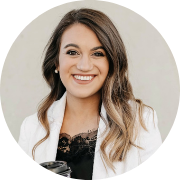

Kyla Jolly began her undergrad career at UTC, like many incoming freshmen, wondering what major to declare. After her freshman year classes, Kyla would go home and turn on the TV to watch investigative shows. One day, she thought to herself, “Why don’t I do that and work in law? It’s thrilling!” She declared a major in criminal justice and fell in love with the content she was learning. Kyla graduated from UTC in 2017 and is currently preparing to either attend law school or work for a victim advocacy program in Chattanooga. Regardless of the path she chooses, she decided long ago that gaining as much knowledge and experience in the legal field as possible would be beneficial long-term. She enrolled in UTC’s Paralegal Certificate course to gain more knowledge and hasn’t looked back since!
Marah: What did you enjoy most about the Paralegal Certificate course?
Kyla: I enjoyed learning about the “behind-the-scenes” aspects of being a paralegal while reading the bluebook and looking at case law. While studying state law, I was able to learn about parts of Tennessee law that I had never considered before. That was fun! I also was glad to have Westlaw access because it was easy to research topics that I had a more natural curiosity about. Most law firms use Westlaw, so practicing using the research tool was helpful. I appreciated that the content of the course gave me a realistic outlook of what to expect while pursuing a legal career.
M: What realistic expectations of the paralegal field did the course give you?
K: The course taught me the “day-in-the-life” functions of a paralegal down to the time stamps! I learned how to report my time, how to handle time with clients, how to talk to clients, how to ask investigative questions, how to act when I am with clients, what I can and can’t say in a courtroom…the list goes on and on! I had a presumption before taking the course that paralegals solely do research and then give someone else the rest of the work to do. Actually, the paralegal does most of the work and then provides it to their client and attending lawyer. The course shifted my perspective to be much more realistic!
M: What was the interaction with the instructor like?
K: My instructor was Lamont Belk and he was five stars all around. Despite the course being online, he had great communication skills. He would set up Zoom sessions for students to ask him extra questions if they needed to. I appreciated his attentiveness throughout my time in the course.
M: Did you work full-time or part-time while taking the course? Is it manageable to do both and create a healthy work/life/study balance?
K: I worked full time at Unum while completing the course. Working full-time while in the course is definitely doable, but I would advise students to know what’s due in advance. Many assignments were due on Saturday or Sunday, so you will want to adjust your schedule throughout the week to make sure you have time to get assignments done. After being graduated for a couple of years, it was an adjustment to do schoolwork after work was over at 4 p.m. However, doing so was good for me. I viewed it as having something to look forward to after work!
I also found that color-coding my planner with my assignments helped me stay organized. I also appreciated that I was told what percentage I needed on each assignment to pass the course, so I didn’t have to calculate it myself or figure out what I needed at the end.
M: How did the course prepare you for your future endeavors?
K: The legal knowledge I have now will help me tremendously if I decide to pursue law school in the next five years. Short-term, I plan to take the National Association of Legal Assistants (NALA) Certified Paralegal (CP) exam. While the course is not advertised to help students prepare for that exam, the books, knowledge, and tools you get from the course are helpful in preparing for the NALA. I think of it as the course gives you the bones of the house for the NALA but you have to design and structure your test experience the way you want it to go. You have to pursue the testing yourself. By taking the course, I also was able to learn more about my passion–victim advocacy. I want to take the Victim Advocacy Certificate course in the near future.
M: What advice would you give to a criminal justice student, or anyone else, wanting to become a paralegal?
K: First, meet with someone who is a paralegal and ask them what their daily role is like. Many people have misconceptions that paralegal work is just the “grunt work” of the office, but being a paralegal can be a lifetime career if you want to create that. I learned so much about paralegal work that is so exciting to me, such as the investigative side! My main advice is to put yourself out there and ask all the questions you can think of. Don’t make any assumptions before you ask reliable sources questions about the field.
M: Is there anything else you would like to share about your Paralegal Certificate course experience?
K: I look back and am so glad that I completed the course. It taught me that there is so much more to the paralegal field than I ever could have imagined–which still excites me!
ABOUT THE AUTHOR:

Marah Whitaker (think Laura with an M) serves as the marketing assistant for the UTC Center for Professional Education. During the workday, she spends time writing blog posts, creating content for social media, developing email campaigns, and building relationships with CPE’s customer base. During her free time, you can find her getting lost in a good book, having spontaneous dance parties, playing piano, and going to Buffalo Wild Wings on Wing Night. Professionally and personally, she aspires to live by Mr. Feeny’s advice, “Dream. Believe. Try. Do Good.” She strives to use her passions to serve others and contribute positively to the world around her.
Connect with Marah on LinkedIn.